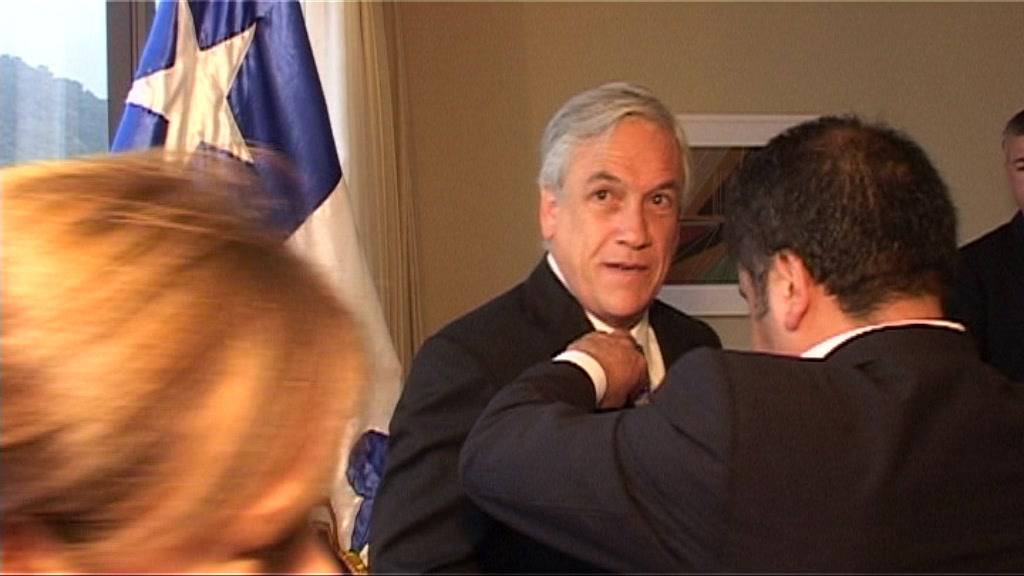Profile: Chile's President Sebastian Piñera
- Published
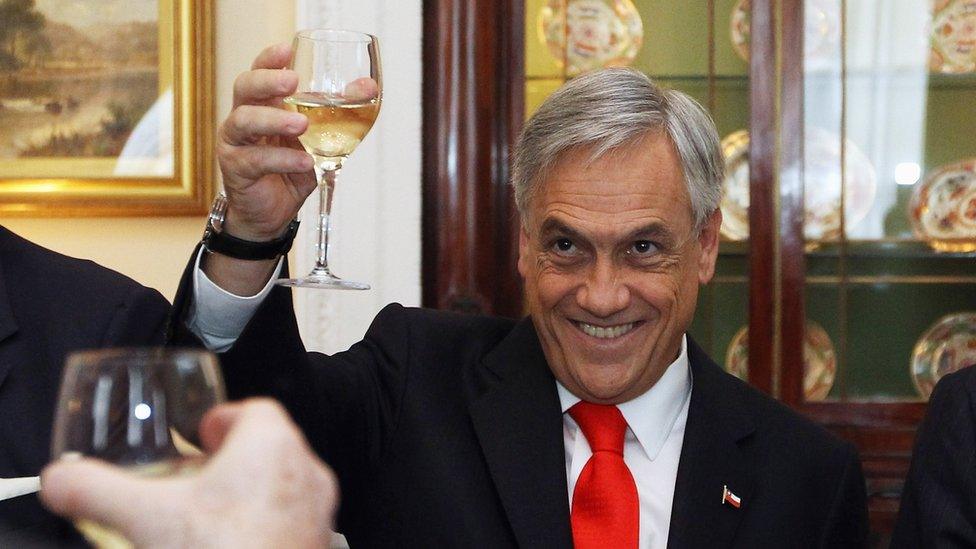
From billionaire president to civilian back again - who is Sebastian Piñera?
Sebastian Piñera has returned to the Chilean presidency after four years of civilian life.
The conservative billionaire, who represents the right-wing Chile Vamos coalition, was previously president between 2010 and 2014.
Chile does not allow re-election of the sitting president, but does let former presidents run again after someone else has held the office - this is what he has done, winning the run-off vote.
So who is the once and future President Piñera?
Billionaire businessman
When he first became president in 2010, Mr Piñera became Chile's first conservative president since the end of military rule in 1990.
The Harvard-trained economist displaced the country's first female president, Michelle Bachelet, promising to turn his business acumen to the country's economic growth.
Born in 1949, he remains one of Chile's richest men, with an estimated personal fortune of roughly $2.7bn (£2bn).
Much of his money was made in the 1980s when he introduced credit cards to Chile through his company Bancard. He also invested in Chile's biggest main airline, Lan Chile, the country's top football club, Colo Colo, and a television channel.
When he became president, however, he promised to sell off several holdings to avoid potential conflicts.
President Piñera
In both his campaigns, Mr Piñera has vowed to apply his business know-how to government.
He enjoys broad support from Chile's business community, and united the country's conservative wing.
But when first campaigning, he had to distance himself from the centre-right's political past, and the legacy of the right-wing military government of Gen Augusto Pinochet, who was in power from 1973 to 1990.
He promised change, a focus on jobs, and said he would both tackle poverty and boost the private sector.
But the first days of his presidency forced him to change many of his plans.
On 27 February, 2010, a powerful earthquake struck Chile, killing some 500 people and destroying tens of thousands of homes.
When the new president entered office two weeks later, he said the devastation meant he would have to reassess his plans, and said his leadership would now oversee "a government of reconstruction".
The miners were trapped 700m (2,300 ft) underground
He also received a massive popularity rating boost for his management of the 2010 Chilean mine collapse, in which 33 men were successfully rescued from the ground after 69 days.
But his first term was not without issues. Widespread student protests marred the following year, and he shuffled his cabinet twice in just a few months.
He was also seen as prone to a number of gaffes.
On one occasion, he praised a "brave and mature" a pregnant 11-year-old rape victim, and on another, he landed his helicopter on a main road after running out of fuel.
Return to power
When Mr Piñera's term ended, he was replaced by the woman he had, himself, replaced - Michelle Bachelet. By the end of his second term, the pair will have traded the presidency between them for 16 years.
She brought a progressive agenda to the presidency and several reforms, culminating in the easing of Chile's strict abortion laws in 2017.
But conservatives said her reforms went too far, and Mr Piñera campaigned, in part, on reining in some of her changes.
He also accused Bachelet of economic mismanagement - which, as in his first campaign, was a core part of his election strategy.
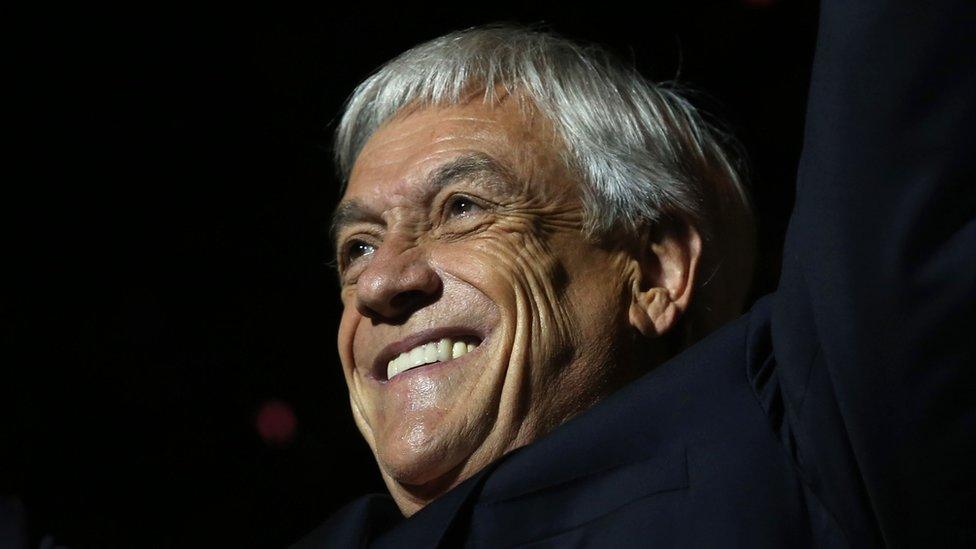
Eight years after his first win, Mr Piñera celebrated another victory
He finished the first round of voting with a 14-point lead, with the left-leaning vote split among other candidates.
But Mr Piñera also seemed to have learned from the student protests he faced in his first term. During the run-off campaign, he reversed his stance on the expansion of free higher education - a Bachelet policy which he had previously criticised.
In the final vote Mr Piñera emerged victorious by a margin of several points. After his victory, he pledged to unite the country's political factions.
"Each time that we Chileans have confronted each other, and seen each other as enemies, we have suffered our greatest defeats and greatest grief," he said.
"We all know that each time we have united as Chileans, we have achieved our most beautiful triumphs, and our greatest victories."
- Published18 December 2017
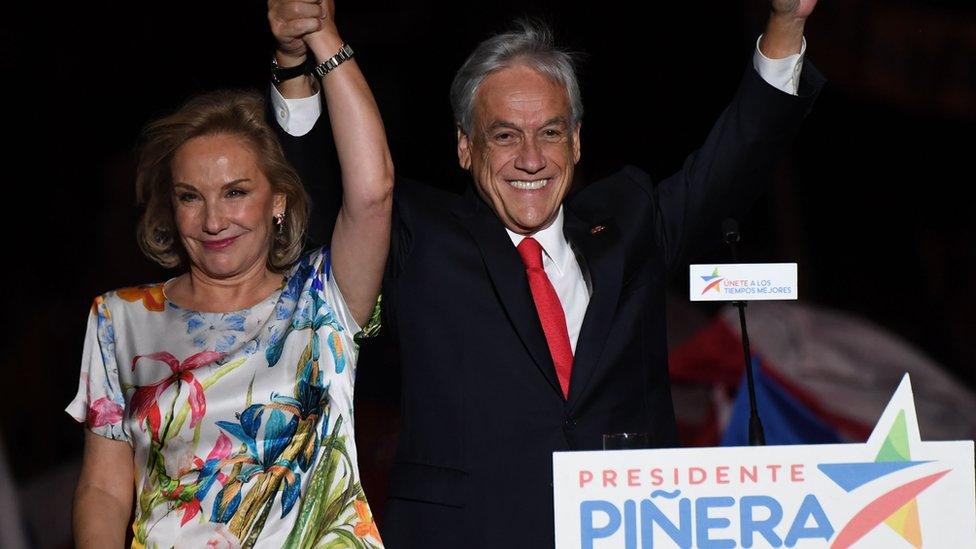
- Published11 December 2023
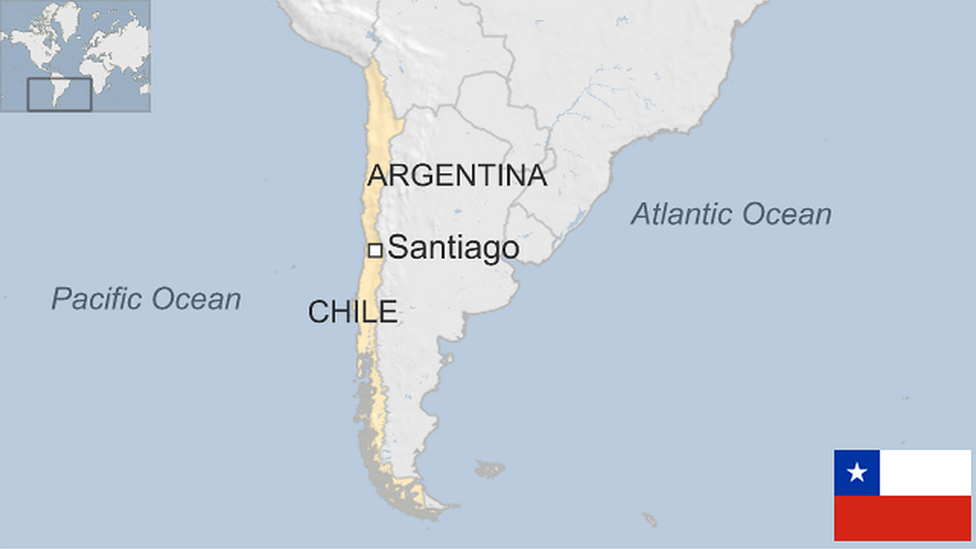
- Published22 June 2012
